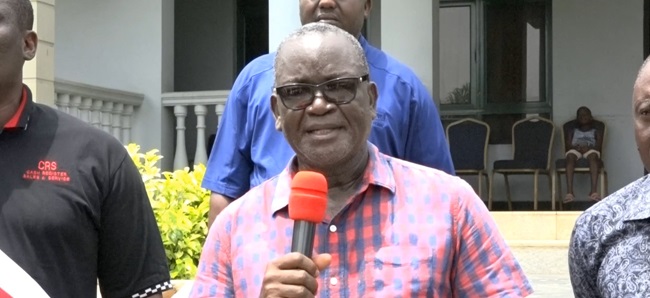Aladdins, genies and policy-making, By Uddin Ifeanyi
The headline inflation rate in June confirmed what most Nigerians have known for some time. The cost of living in the country has risen sharply this year. Over one year, the headline inflation rate increased to 18.60% in June. Just a month ago, it was up 17.71%. You don't have to be a statistician to know that the burden of rising prices falls disproportionately on the poor. Anecdotal evidence abounds of hard-working neighbors literally begging by prevailing economic conditions. The effect of inflation is, again, largely due to the poor spending a disproportionate share of their income on food compared to their wealthier brethren. This difference in the shopping cart component across income groups is also a reason why perceptions of inflation differ across the economy. Significantly, the food index which had increased by 19.50% in May reached 20.60% in June.
Our policymakers should stay awake at night, paying attention to how the “poor and vulnerable” are coping with current economic conditions, and what short-term options are available to them. The legion of able-bodied young Nigerians hanging around our streets and highways is one result. Is worsening insecurity another? Governments at all three levels should also be concerned at this point that more than two-thirds of our compatriots live on less than $2 a day and that the official unemployment rate is at its highest in recent times. Under these conditions, the productivity gains the economy needs simply won't happen.
Remove the food component from the basket of goods with which inflation figures are calculated, and the worry is great. The measure of underlying inflation rose from 14.90% year-on-year in May to 15.75% in June. Clear evidence of general price pressures across different sectors of the economy, belying the tendency to look for exogenous explanations (COVID-19, Russian invasion of Ukraine, etc.) for what is obviously a idiosyncratic problem.
If inflation were a cause for concern in June, optimists would be forgiven for looking for signs of a slowdown, as global prices begin to decline on fears of a recession induced by less accommodative monetary policies in major world economies. More so, with the Central Bank of Nigeria's (CBN) rate-setting committee seemingly committed to doing whatever is necessary, now, to curb rising prices. However, the price dynamics last month did not offer such assurance. Monthly prices across the country rose 1.82% in June, after rising 1.78% in May.
Worse still, the political environment in which all of this is taking place is also not reassuring. In economies where monetary authorities have reacted to price pressures, including places like Brazil, where the response has anticipated the effect on global financial portfolios of U.S. rate hikes, there are targets clear inflation rates: 2% in the United States and the United States. United Kingdom, below 2% in the euro zone. For these economies, these targets are the inflation rates at which the respective economies are operating (output, unemployment, etc.) optimally. Therefore, the difference between the inflation situation at a given time and this target determines both the nature and the intensity of monetary policy responses. On the other hand, understanding this process means that markets can anticipate policy responses and participants organize their affairs accordingly.
If, therefore, one were to read the central bank of Nigeria's inflation target of 6-9% from the current level of inflation, the temptation is to assume that the central bank will have to pursue aggressive increases in its benchmark rate over the next 12 months if we are to bring the current path of domestic prices back in line with the central bank's inflation target. Except, as with most things Nigerian, the central bank's inflation target is the kind of outcome you get when a Nigerian leader, stranded on a remote island, meets a genie offering him three wishes. Tales of One Thousand and One Nights aside, Nigeria is not a low inflation economy. The baksheesh economy, sluggish criminal justice system and dilapidated infrastructure base all increase business costs across the economy.
I haven't had a lot of national research on the subject. But a friend who is competent to do such research (and has done so) estimates the rate of inflation that balances the growth needs of the economy with “full” employment at around 12%. In other words, there is much less distance between the rate policymakers should target for inflation and the current inflation rate situation than there is between the current inflation target. central bank and the rate at which domestic prices are rising.
Small consolation, that. All of this only reinforces the belief that there is a huge gap between the results of a fact-based process and those of a wish-fulfilment process. ...

The headline inflation rate in June confirmed what most Nigerians have known for some time. The cost of living in the country has risen sharply this year. Over one year, the headline inflation rate increased to 18.60% in June. Just a month ago, it was up 17.71%. You don't have to be a statistician to know that the burden of rising prices falls disproportionately on the poor. Anecdotal evidence abounds of hard-working neighbors literally begging by prevailing economic conditions. The effect of inflation is, again, largely due to the poor spending a disproportionate share of their income on food compared to their wealthier brethren. This difference in the shopping cart component across income groups is also a reason why perceptions of inflation differ across the economy. Significantly, the food index which had increased by 19.50% in May reached 20.60% in June.
Our policymakers should stay awake at night, paying attention to how the “poor and vulnerable” are coping with current economic conditions, and what short-term options are available to them. The legion of able-bodied young Nigerians hanging around our streets and highways is one result. Is worsening insecurity another? Governments at all three levels should also be concerned at this point that more than two-thirds of our compatriots live on less than $2 a day and that the official unemployment rate is at its highest in recent times. Under these conditions, the productivity gains the economy needs simply won't happen.
Remove the food component from the basket of goods with which inflation figures are calculated, and the worry is great. The measure of underlying inflation rose from 14.90% year-on-year in May to 15.75% in June. Clear evidence of general price pressures across different sectors of the economy, belying the tendency to look for exogenous explanations (COVID-19, Russian invasion of Ukraine, etc.) for what is obviously a idiosyncratic problem.
If inflation were a cause for concern in June, optimists would be forgiven for looking for signs of a slowdown, as global prices begin to decline on fears of a recession induced by less accommodative monetary policies in major world economies. More so, with the Central Bank of Nigeria's (CBN) rate-setting committee seemingly committed to doing whatever is necessary, now, to curb rising prices. However, the price dynamics last month did not offer such assurance. Monthly prices across the country rose 1.82% in June, after rising 1.78% in May.
Worse still, the political environment in which all of this is taking place is also not reassuring. In economies where monetary authorities have reacted to price pressures, including places like Brazil, where the response has anticipated the effect on global financial portfolios of U.S. rate hikes, there are targets clear inflation rates: 2% in the United States and the United States. United Kingdom, below 2% in the euro zone. For these economies, these targets are the inflation rates at which the respective economies are operating (output, unemployment, etc.) optimally. Therefore, the difference between the inflation situation at a given time and this target determines both the nature and the intensity of monetary policy responses. On the other hand, understanding this process means that markets can anticipate policy responses and participants organize their affairs accordingly.
If, therefore, one were to read the central bank of Nigeria's inflation target of 6-9% from the current level of inflation, the temptation is to assume that the central bank will have to pursue aggressive increases in its benchmark rate over the next 12 months if we are to bring the current path of domestic prices back in line with the central bank's inflation target. Except, as with most things Nigerian, the central bank's inflation target is the kind of outcome you get when a Nigerian leader, stranded on a remote island, meets a genie offering him three wishes. Tales of One Thousand and One Nights aside, Nigeria is not a low inflation economy. The baksheesh economy, sluggish criminal justice system and dilapidated infrastructure base all increase business costs across the economy.
I haven't had a lot of national research on the subject. But a friend who is competent to do such research (and has done so) estimates the rate of inflation that balances the growth needs of the economy with “full” employment at around 12%. In other words, there is much less distance between the rate policymakers should target for inflation and the current inflation rate situation than there is between the current inflation target. central bank and the rate at which domestic prices are rising.
Small consolation, that. All of this only reinforces the belief that there is a huge gap between the results of a fact-based process and those of a wish-fulfilment process. ...
What's Your Reaction?






















